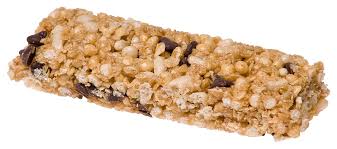Nov 27, 2017Extra Energy
Tim just got out of his last class of the day and needs to be on a soccer field across campus in 45 minutes dressed and ready to practice, but right now he’s feeling low on energy. Jessica is headed out on her longest training run of the season and isn’t sure what to bring with her for fuel. Alex worked on a school project with classmates all morning, rode the team bus for two hours to the game, and when halftime rolls around, he isn’t sure he’ll be able to sustain his level of play.
What can these athletes do for a quick boost? Though there is no replacement for food-based fuel combined with properly timed nutrient consumption, a fast-acting energy supplement might be the answer.
To start, coaches and athletes need to understand how these products work. While the combination of ingredients and how they are packaged varies, the goal of each energy supplement on the market is the same: to boost an athlete’s energy level. There are two basic ways supplements can safely do this.

The first is with carbohydrates. Just as foods that contain carbohydrates improve energy levels, so do carbohydrate-containing supplements. The single most important source of energy for athletes, carbohydrates provide the fastest and most efficient method of fueling muscle contractions for any type of exercise.
During digestion, carbohydrates are broken down into smaller sugars–glucose, fructose, and galactose. These sugars are then absorbed into the bloodstream where they are immediately used as muscle fuel.
Any sugars not needed by the muscles right away gets stored as glycogen–a complex carbohydrate energy reserve. The muscles and liver can generally store up to 1,800 calories worth of glycogen for future use. That’s about two to three hours worth of fuel. And any extra glucose beyond the 1,800 calories is stored as fat.
When blood glucose levels start to drop during exercise, the stored glycogen is called upon. Because of its immediate accessibility in the muscles and liver, these glycogen stores are tapped for short, intense bouts of exercise like sprinting and weight lifting. Endurance exercise, like a long run sustained at a slow pace, is eventually fueled by the extra glycogen being stored as fat.
Carbohydrate-containing supplements are generally made for long-duration exercise. If an athlete has a lengthy preseason practice, they are a great choice as they will effectively elevate blood sugar for energy while exercising.
The second way to safely boost energy levels is with caffeine. Research suggesting that caffeine enhances performance is plentiful, so it’s no surprise many manufacturers use it as a main ingredient in their energy supplements. Studies have shown small but worthwhile improvements in both short-term, intense aerobic exercise lasting four to eight minutes as well as prolonged high-intensity aerobic exercise lasting 20 to 60 minutes. However, the stimulant’s effect on strength and power (weightlifting) exercises and sprints lasting less than 90 seconds is unclear.
Greater alertness, attentiveness, and an overall sense of increased energy have also been attributed to caffeine use. Recent evidence suggests that low intake levels–one to three milligrams per kilogram of body weight–are ideal and best consumed an hour before and/or during exercise. I recommend athletes look for drinks, bars, gels, and sport beans with up to 100 milligrams of caffeine per serving.
It’s important to note that caffeine is a central nervous system stimulant and can cause jitteriness in athletes not acclimated to using it. It may not be for everyone, so if you recommend a supplement with caffeine to an athlete, make sure they are aware of this possible side effect. Several companies that manufacture energy supplements also offer reduced or caffeine-free alternatives.
And though the World Anti-Doping Agency removed caffeine from its list of prohibited substances in 2004, the NCAA’s doping threshold is 15 micrograms per milliliter of urine. A moderate amount of caffeine (up to six milligrams per kilogram of body weight) will not raise urinary caffeine levels, but it’s good for athletes to be aware not to consume too much.
Hundreds of popular energy supplements combine carbohydrates and caffeine for an optimal energy boost. I tell athletes to look for supplements with 25 to 30 grams of carbohydrates and no more than 100 milligrams of caffeine. There are a number of products that contain these optimal levels.
When combining carbohydrates and caffeine, athletes should consume the supplement 30 to 60 minutes prior to exercise. This will give the body the time it needs to digest and absorb the carbohydrates. If pressed for time, consuming a liquid supplement is best because carbohydrates in liquid form are immediately transported into the bloodstream, quickly elevating blood sugar.



